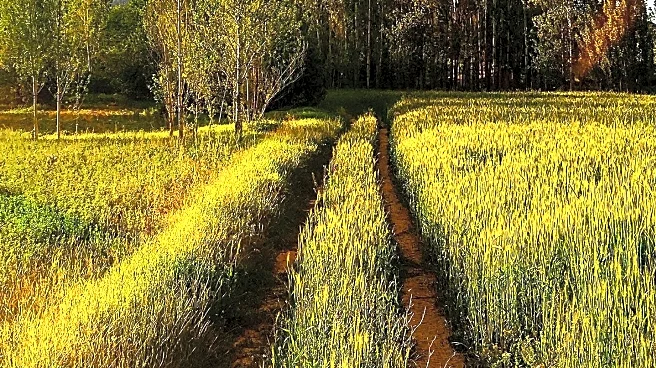What's Happening?
Northern Israel's nature trails have reopened for fall adventures, coinciding with the Rosh Hashanah holiday. This year, all northern nature sites are accessible, offering opportunities to explore water-rich trails, blooming landscapes, and bird migrations. Key sites include Hula Lake, where flamingos, storks, and pelicans have begun their migration, and Amud Stream, known for its year-round flow and scenic hiking trails. Other notable locations include Kziv Stream, Yehudiya Forest Nature Reserve, and Mount Meron, each offering unique natural features and hiking experiences. The reopening of these trails provides a chance for visitors to engage with Israel's diverse ecosystems and historical sites, with many trails requiring advance booking through the Israel Nature and Parks Authority website.
Why It's Important?
The reopening of northern Israel's trails is significant for eco-tourism, providing a boost to local economies and promoting environmental awareness. These trails offer a unique blend of natural beauty and historical significance, attracting both domestic and international tourists. The influx of visitors can support local businesses and conservation efforts, highlighting the importance of sustainable tourism practices. Additionally, the trails offer educational opportunities about Israel's biodiversity and cultural heritage, fostering a deeper appreciation for the environment. The timing with Rosh Hashanah also allows for cultural and religious experiences, enhancing the overall appeal of the region.
What's Next?
As the trails remain open, ongoing conservation efforts will be crucial to maintaining the natural beauty and ecological integrity of these sites. The Israel Nature and Parks Authority may continue to implement measures to manage visitor impact and ensure sustainable tourism practices. Future developments could include enhanced facilities and guided tours to further enrich the visitor experience. The success of this reopening may encourage similar initiatives in other regions, promoting eco-tourism as a viable economic and environmental strategy.











